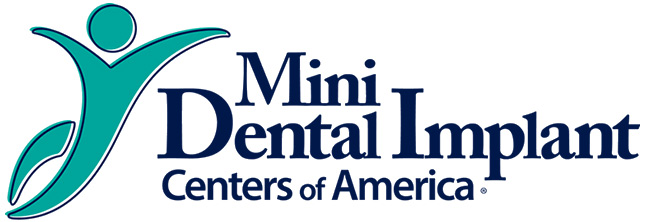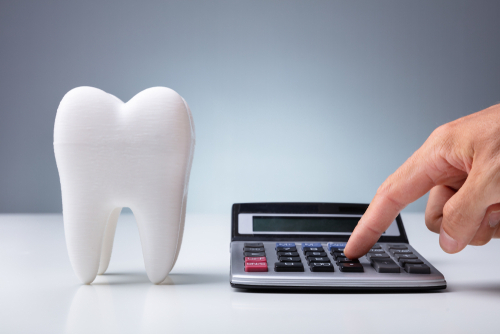Navigating the financial side of dental health can sometimes feel like walking a tightrope. On one side, you have the pressing need for dental procedures that can enhance your oral health and overall well-being. On the other, there’s the reality of managing your budget in an economy where every penny counts. For many, this balancing act can lead to putting necessary dental treatments, like dental implants, on the back burner. But what if there was a way to make this crucial investment in your health more accessible? Not only are dental implants a long-term tooth replacement solution, but they may also be tax deductible. Keep reading to learn how!
Understanding the Tax Deductible Nature of Dental Implants
The IRS allows individuals to subtract certain medical expenses from their taxes, including dental treatments like dental implants. However, only costs not covered by insurance or otherwise reimbursed qualify. Additionally, your deductible expenses must exceed 7.5% of your adjusted gross income (AGI). Your AGI is your total annual income minus any deductions you’re already eligible for (like student loan interest or contributions to retirement accounts).
Let’s consider an example. If your AGI is $65,000, let’s explore how claiming tax deductions for dental implants might look. Suppose you incurred $20,000 in medical and dental expenses over a year. The next step involves calculating 7.5% of your adjusted gross income (AGI). Doing the math, 7.5% of $65,000 comes to $4,875. You can deduct qualifying medical expenses that exceed this number.
Since your total medical expenses of $20,000 surpass this threshold, you’re in a position to claim a tax deduction. Specifically, you can deduct the difference between your total expenses and the threshold, which is $15,125 ($20,000 – $4,875).
Are My Dental Implants Tax Deductible?
Deducting medical expenses, including dental implants, on your tax return may initially seem confusing. But we’re here to help! Here are some steps you should take to determine if your dental implant procedure qualifies:
- Gather your medical and dental expenses: Begin by compiling all costs related to your health care over the year. This includes everything from the dental implant procedure to secondary costs such as medications, X-rays, and even your travel expenses to get medical or dental care.
- Calculate 7.5% of your AGI: Your next step is determining what 7.5% of your AGI amounts to. This percentage is your benchmark; you can deduct the sum of your medical expenses that exceed this figure.
- Assess your eligibility: After totaling your medical expenses and determining 7.5% of your AGI, compare the two. If your expenses are higher, you can deduct the difference on your tax return.
- Opt for itemized deductions: To claim this deduction, you’ll need to itemize your deductions on your tax return instead of taking the standard deduction. This involves listing your deductions individually on Schedule A (Form 1040), where you’ll include your medical expenses above the 7.5% threshold.
Armed with this approach, claiming a deduction for dental implant expenses becomes more navigable. It’s about turning a complex tax principle into actionable steps. Remember, keeping thorough records and consulting with dental and tax professionals are key to maximizing your benefits. If you’re not sure whether you should claim the standard deduction or itemize your deductions, a tax advisor can help.
Enhancing Oral Health With Dental Implants: Explore the Options
A dental implant is a synthetic tooth root placed directly into the jawbone. It provides a strong foundation for replacement teeth that are designed to match your natural teeth. Traditional implants are approximately 5 millimeters in diameter. They are suitable for patients with a healthy jawbone structure capable of supporting their larger size.
Mini dental implants offer a less invasive and more cost-effective alternative to traditional implants. With a diameter of less than 3 millimeters, they do not require as much bone for placement. This means that they typically do not require bone grafting. The smaller size of mini dental implants allows for a more straightforward and minimally invasive placement procedure, often completed in a single visit. This can significantly reduce the treatment time and overall cost.
The Cost Benefits of Dental Implants
At half the cost of traditional dental implants, mini implants make dental restoration more accessible to a broader range of patients. They may also qualify for medical expense deductions if your insurance plan doesn’t cover them. This added financial advantage may be appealing to budget-conscious patients.
If you’ve already invested in dental implants, you’re reaping the benefits of a secure and natural-feeling tooth replacement. Beyond the immediate improvements to your oral health and aesthetics, an additional aspect worth considering is the potential tax benefits. For those who have undergone traditional or mini dental implant procedures, exploring the option to claim these expenses on your taxes could offer financial relief!
Dental Implants Are an Investment in Your Oral Health
We understand that affordability is crucial when considering dental procedures. That’s why we offer various financing options to fit your budget and financial planning. Whether you’re considering dental implants or have already enhanced your smile with us, let’s ensure you fully benefit from all potential tax deductions and financing solutions. Schedule a free consultation today to learn more about this innovative investment in your oral health.

